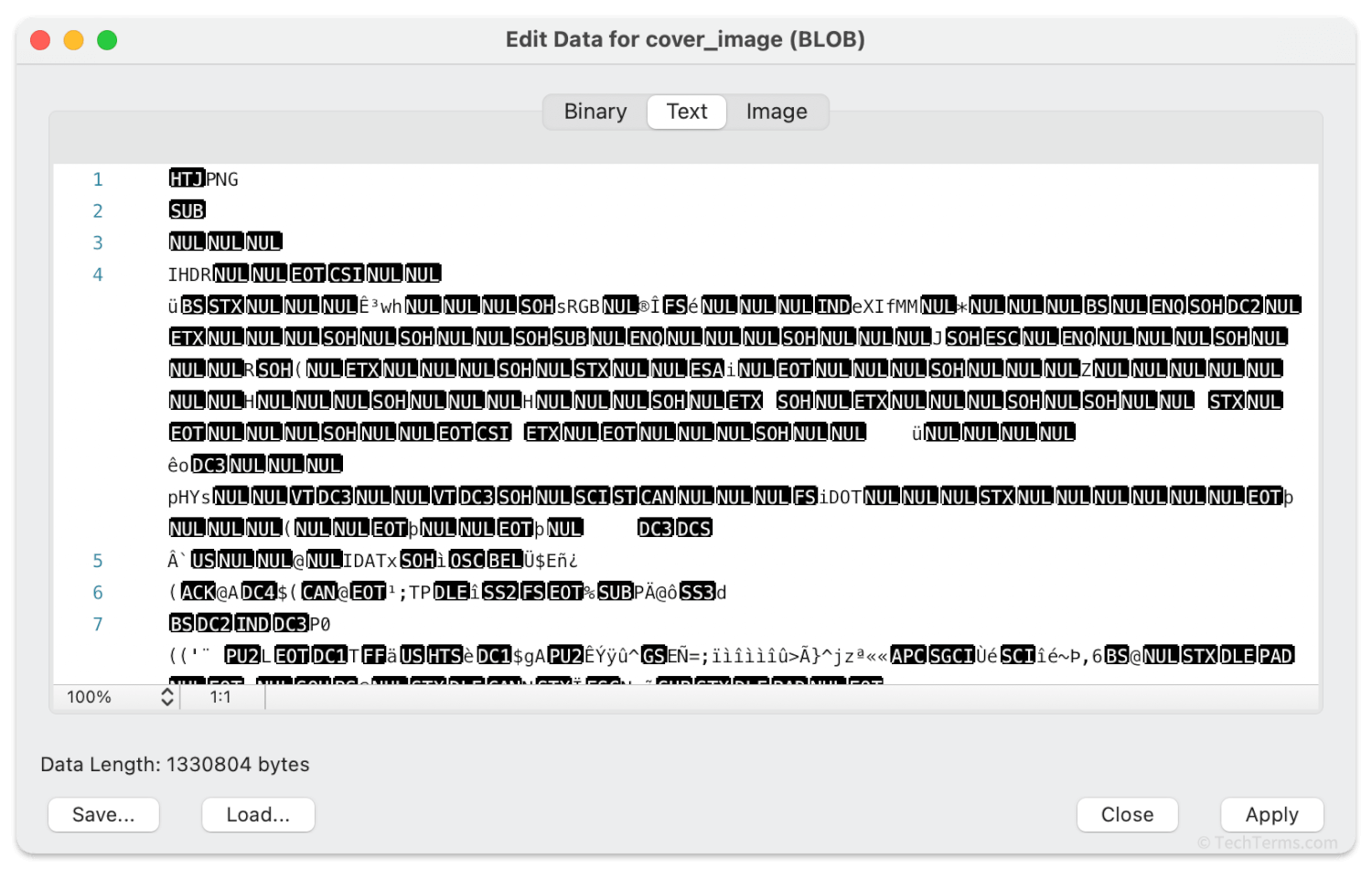BLOB
Stands for "Binary Large Object."
A BLOB is a database data type that can store large chunks of binary data. Databases that support BLOBs use them to store entire distinct files within the database. Since they store binary data directly, BLOBs are unlike most other database data types that can only store data as plain text, boolean values, or numbers.
BLOBs allow a database to attach binary data directly to a database record. For example, a database of a website's users may use the BLOB data type to store each user's uploaded profile image. While the most common use of BLOBs is to store media files, they may contain any file type — a BLOB might consist of a PDF document, a ZIP archive, or even an executable file. However, since they consist of unstructured binary data and not text, database software cannot search their contents; instead, a database can include additional fields containing searchable metadata for the BLOB.
Storing files as BLOBs in a database also significantly increases the size of the database. Binary BLOBs require much more storage space than plain text and numbers, and storing large BLOBs can slow down database queries. Instead of storing BLOBs in a database directly, many administrators set aside separate cloud storage for media files and insert links to those files into database records. This makes sharing, updating, and editing files easier (since the changes do not need to go through the database) but adds complexity by requiring separate backups and permissions management.
NOTE: Some types of database include multiple BLOB data types to help manage storage space. For example, MySQL supports four types — TINYBLOB for files under 255 bytes, BLOB for files up to 64 kilobytes, MEDIUMBLOB for files up to 16 megabytes, and LONGBLOB for files up to 4 gigabytes.

 Test Your Knowledge
Test Your Knowledge